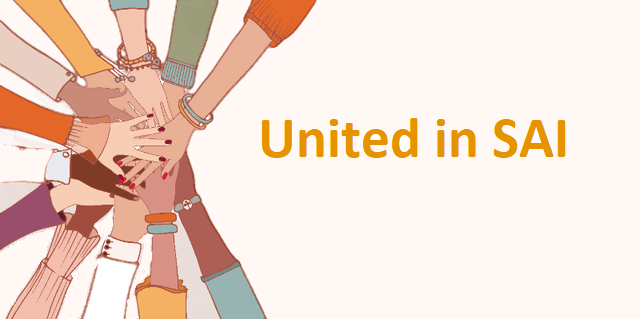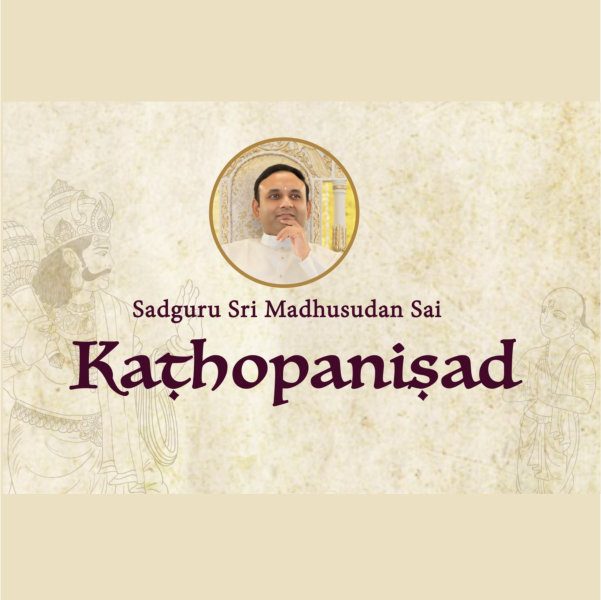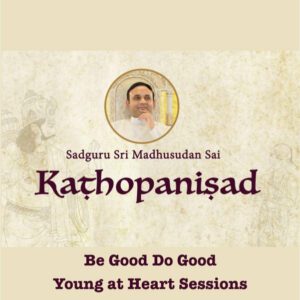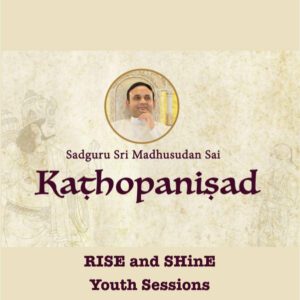Sadguru Sri Madhusudan Sai has blessed Sheela Awat to facilitate weekly Kathopanishad sessions (online) in order to highlight and discuss the key aspects of Kathopanishad as propounded by Swami. All His ‘Kathopanishad’ discourses can be accessed via this link: Kathopanishad Discourses.
Why know Kathopanishad?
Death as Teacher
Upanishads are ancient scriptures of the highest Advaitic wisdom which was revealed to the sages and seers of India in their deepest spiritual communion with the ultimate Divine Self. The Upanishad mostly written in a question and answer format, clearly demonstrate that asking the right questions in life is half the battle won.
Katha Upanishad (shortened to Kathopanishad) is one of the ten Upanishads that Adi Shankaracharya wrote commentaries on and is the Upanishad that Sadguru Sri Madhusudan Sai singled out as his favourite extolling the many facets of its beauty including the fact that Nachiketa is the youngest seeker of all the seekers mentioned in all the Upanishads and yet his questions are the highest of all! In Kathopanishad we have the right question in a dramatic setting where the ideal student confronts the ideal teacher – Death himself! What is equally inspirational is the unfolding of the dramatic confrontation between the two which then reverses spontaneously after Nachiketa passes Death’s severe test and we see Death transform from being unwilling and uncooperative to a delighted willing teacher.
Kathopanishad, written as a dialogue between a determined young seeker (who refuses to be swayed by any of the temptations of the material world and beyond), Nachiketa and an enlightened knower, Yama (Lord of Death) takes one on a journey to Self-realisation in a guided manner. “Now that I have seen your face,” he says to Death, “what can I enjoy?” Nachiketa represents the latent capacity in all of us to question the purpose of life, especially in light of the fact that death is inevitable. It dispels all doubts in the mind of a seeker, thereby endowing clarity and courage to move towards knowing one’s True Self.
“Arise, awake and stop not until the goal is reached!” – Kathopanishad



